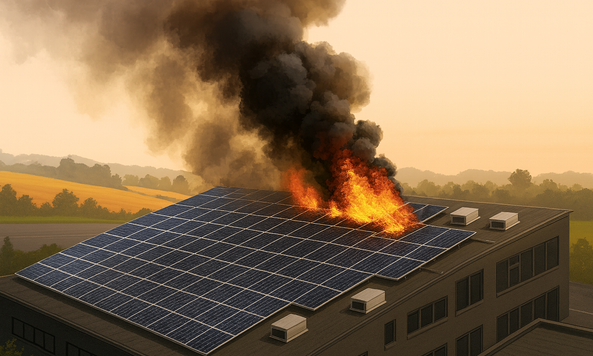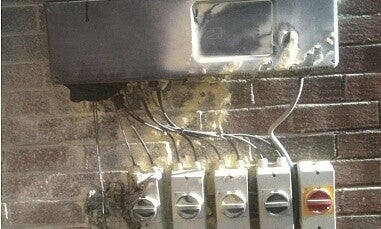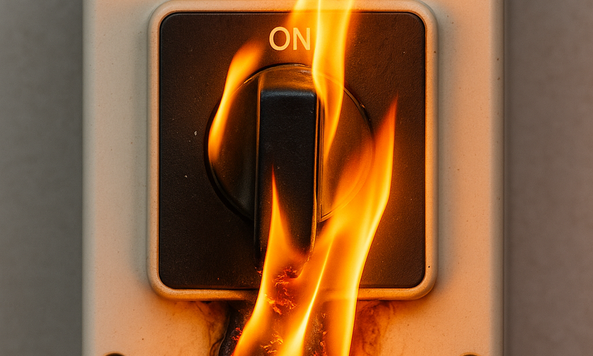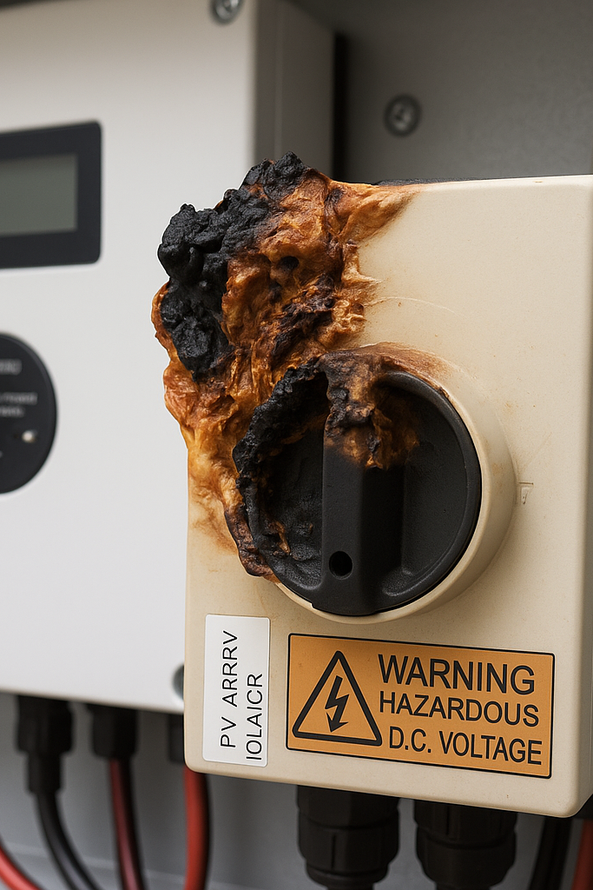Read our latest news
A Wake-Up Call: The St Martins School Fire
When news broke about the fire at St Martins School in Oswestry, speculation quickly turned to the possibility of a link with the school’s solar panel system. While investigations continue, this tragic incident is a reminder that solar PV fires do happen — and they can have devastating consequences.
For homeowners with solar panels, it underlines one simple truth: keeping your solar system safe must be at the very top of your home improvements list.
More information
The Hidden Danger in Solar PV Systems
Independent government-backed investigations (BEIS / BRE, 2017–2018) have shown that DC isolators and DC connections are among the leading causes of fires in solar PV systems.
These switches — designed to disconnect the solar panels from the inverter — can, if poor-quality or badly installed, overheat and arc, turning into ignition points.
🔥 Evidence shows that many PV fires have started at DC isolators, connectors, or cables due to arcing faults.
Why Some Solar Companies Are Making Things Worse
Recently, some solar companies have been retrofitting extra DC isolators into existing systems. They claim this makes systems safer — but the opposite can be true:
-
If your inverter already has a built-in DC isolator, you do not need an extra one.
-
Adding another switch introduces extra connectors, contacts, and wiring — all of which are new potential failure points.
-
Poor quality isolators, or AC switches repurposed for DC, are particularly dangerous.
Bottom line: More isolators do not equal more safety.
What the Experts Say
-
BRE / BEIS reports: Fires linked to DC isolators and connectors were repeatedly documented in UK systems.
-
RC62 Fire Safety Guidance: Extra components and poor installation practices increase fire risk rather than reduce it.
-
Industry best practice: Only use high-quality, properly rated isolators — and only where they are genuinely required.
How to Protect Yourself
✔️ Check your system paperwork — if your inverter has its own DC isolator, you don’t need another one.
✔️ Be wary of solar companies offering to “upgrade” your system with extra switches.
✔️ Ask for proof: Any installer should provide MCS certification, component specs, and test reports.
✔️ Book regular inspections: A proper solar maintenance survey (with thermal imaging) will identify faults early and give you peace of mind.
Peace of Mind from Solar North
At Solar North, we offer a comprehensive Solar PV Maintenance Survey for just £199. This includes:
-
Full inspection of your DC and AC solar systems
-
Thermal imaging report to detect hidden hot spots and loose connections
-
Expert advice on keeping your solar PV safe and efficient
[ Book Your £199 Survey Now ]







Add comment
Comments